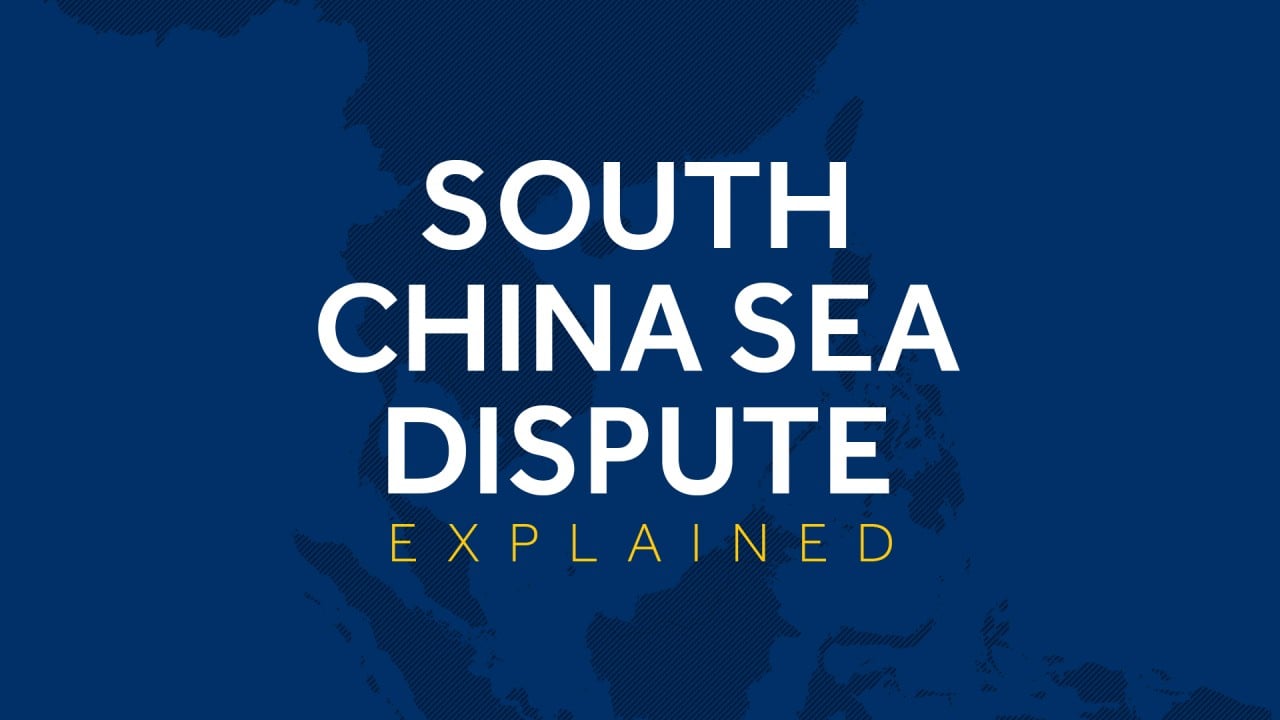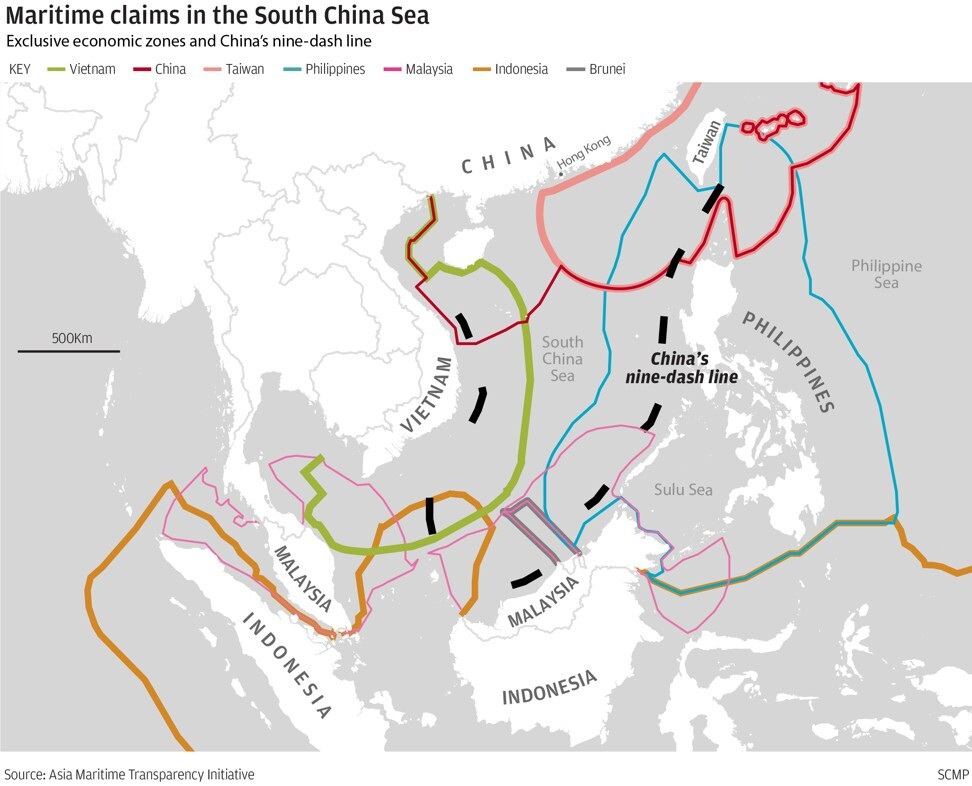
03:23
The South China Sea dispute explained

03:23
The South China Sea dispute explained

03:23
The South China Sea dispute explained
US South China Sea stand new but no surprise, analysts say
- American position meant to drive a wedge between China and other claimants, analyst says
- United States is also ‘changing its attitude to peaceful resolution’ of the disputes
“The world will not allow Beijing to treat the South China Sea as its maritime empire,” Pompeo said, adding that the US stood with its Southeast Asian allies “in protecting their sovereign rights to offshore resources”.
The paper was a sharp contrast to 1995 when the State Department released the “US Policy on Spratly Islands and South China Sea”, saying the US took no position on the legal merits of the competing claims to sovereignty over the various islands, reefs, atolls, and cays in the waters.

03:23
The South China Sea dispute explained
But while Monday’s statement was explicit and strongly worded, it did not add much of substance to the position the US has taken since the 2016 decision by the Permanent Court of Arbitration to deny China’s claims, observers said.
“This latest statement by Pompeo makes it explicit in opposing China’s claims from now on … though it’s barely a new position,” said Collin Koh, a research fellow at the S Rajaratnam School of International Studies at Singapore's Nanyang Technological University.
Pompeo highlighted Beijing’s claims to the waters surrounding Vanguard Bank off Vietnam, the Luconia Shoals off Malaysia, an area within Brunei’s exclusive economic zone and Natuna Besar off Indonesia.
Hu Bo, director of the South China Sea Strategic Situation Probing Initiative (SCSPI), a Peking University think tank, said the US comments were meant to be divisive.
“The purpose of this statement is obvious, which is to drive wedges between China and other claimants,” Hu said.
Besides the shift from the Obama-era “superficial neutrality” to the Trump administration’s “anti-China rhetoric”, another subtle but worrying change in the US position on the South China Sea has been its attitude towards a peaceful resolution of the disputes, according to Chen Cihang, an international law expert at Zhongnan University of Economics and Law.
“In recent years, the US government deems regional peace as disadvantageous,” Chen said in an article on the SCSPI website.
“As the US gradually incorporates more military strategies into its stance on the South China Sea, the importance of diplomatic approaches and international laws is waning.”
Until 2014, the US had said it supported peaceful resolution of disputes in the South China Sea through diplomatic processes, but then more and more military strategies were gradually incorporated into its position, Chen said.
“The bottom line of avoiding the risk of military conflicts is being broken,” he said.
Pompeo also said the US “seeks to preserve peace and stability” and rejected China’s claims and its actions, but did not mention what approach or measures it would take.
Koh said: “I tend to see it as part of a whole string of initiatives that were so far undertaken, such as the sanctions against Chinese officials over Hong Kong, Xinjiang and Tibet.”


